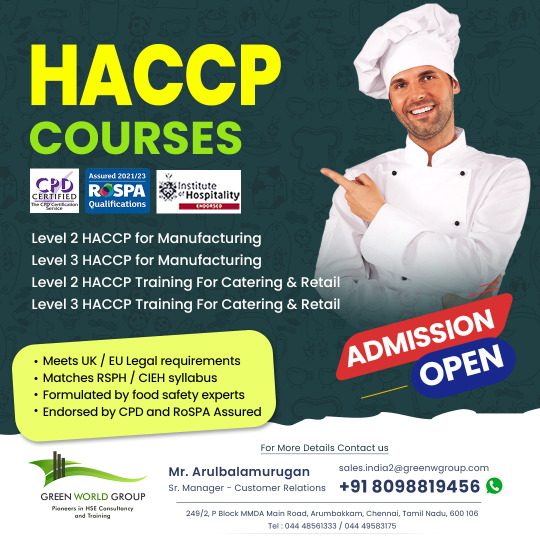#ROSPA
Explore tagged Tumblr posts
Text
#StudyPlex#OnlineLearning#EducationForAll#SkillDevelopment#FunctionalSkills#TESOL#ESOL#GCSECourses#LearnOnline#AccreditedCourses#EducationDeals#CareerGrowth#PearsonEdexcel#SignatureCourses#NCFE#CPDUK#ROSPA#IPHM#UKRLP#FlexibleLearning#StudySmart#LearningOpportunities#ProfessionalDevelopment#StudyPlexDeals#OnlineEducation#EducationSavings#EnrollNow#SkillEnhancement#ModernLearning#DigitalLearning
0 notes
Text
Alba Receives RoSPA Life President Award
Aluminium Bahrain B.S.C. (Alba) received the prestigious Royal Society for the Prevention of Accidents (RoSPA) Life President Award for its commitment to ensuring a safe and healthy work environment as well as setting global benchmarks in safety and health. The award was presented to Ali Al Baqali, Alba CEO, by Lord Jordan of Bournville, RoSPA’s Life President, and Rebecca Hickman, CEO of RoSPA…
0 notes
Text

Pull your load if you can’t see over it. UK, 1943, RoSPA,
Lewitt-Him
59 notes
·
View notes
Text
Ireland Safety Training is a leading provider of Working at Heights Training
Ireland Safety Training is a leading provider of Working at Heights Training
Ireland Safety Training is a leading provider of Working at Heights Training, fully accredited by CPD and approved by RoSPA. Our 100% online course ensures compliance with both HSA (Ireland) and HSE (UK) safety standards, helping professionals meet legal requirements and reduce the risk of workplace accidents.
Whether you're working in construction, roofing, maintenance, or any industry involving tasks at height, our training delivers everything you need:
• Fall prevention strategies • Risk assessment principles • Safe use of PPE (Personal Protective Equipment) • Legal responsibilities under Irish and UK law
You can complete the course entirely online, at your own pace, with 24/7 access from any device. Once finished, you’ll receive your Working at Heights Certificate instantly — ready to use for compliance checks, audits, or job requirements.
Thousands of professionals across Ireland, Dublin, London, and Europe trust our training to stay safe, certified, and compliant.
Start your training today: https://ireland-safetytraining.com/working-at-heights-course
2 notes
·
View notes
Photo
"Wait! Count 15 Slowly Before Moving in the Blackout", British World War II propaganda poster by G.R. Morris, created circa 1939-1945.
I tried researching for the artist full name and relevant information without any luck, other than this…
G R Morris was an artist who ‘produced brilliant, frequently surrealist, ideas, but often failed to finalise them’. Morris worked for the National Safety First Association, founded in 1923, which became ROSPA in 1941, from well before the Second World War, through until about 1956. Morris also designed posters for London Transport, and prepared some designs to illustrate statistics in January 1948. He was a member of the Society of Industrial Artists and designed book jackets for the Bodley Head and other publishers. In the years following the war Morris also produced a variety of work for Colman, Prentice and Varley, Crawfords, Bradbury Agnew, Longmans along with his work for the Bodley Head.
Information taken from: Darracott, J. and Loftus, B., Second World War Posters, 1981 (1972), p.46, London Transport Museum Database, February 2000

G.R. Morris / WWII blackout safety poster
#g.r. morris#vintage poster#british wwii propaganda poster#graphic design#poster design#gr morris#g r morris#wwii
189 notes
·
View notes
Text
Royal Influence: Shaping UK Education and Opening Doors for International Students

The British Royal Family has long kept its fingers in the gears of the UK's education system, weaving influence from nursery classrooms to grand university halls. Through patronages, initiatives, and well-polished ceremonies, they've stamped their mark on schools and colleges alike. Even the late Queen Elizabeth II stood as a towering figure in this domain, her name echoing through charities and institutions like a promise—or a warning.
But let’s not overlook Charles—now King Charles III. He didn’t just sit in gilded rooms. No, he built something tangible with The Prince’s Trust, pulling thousands of young people out of the cracks and pushing them toward education and training. And then there’s the new blood—William and Catherine—rolling up their sleeves for early childhood learning and mental health battles, proving this family isn’t just about crowns and titles.
Of course, their involvement isn’t just about charity. When a royal name lands on a school’s letterhead, it opens doors—funding pours in, international ties tighten, and prestige rises like smoke over London rooftops. Institutions bask in their glow, drawing students from across the globe, all eager to touch a bit of royalty.
It’s a curious partnership, really—centuries in the making. A dance between tradition and progress, wrapped in ceremony but rooted in something more. Power. Influence. Legacy. The monarchy may wear a gentle smile, but it still knows how to shape the future, one classroom at a time.
Royal Impact: Shaping the Future of Education
The British Royal Family hasn’t just sat on velvet thrones—they’ve rolled up their sleeves and dug into the roots of the UK's education system, shaping it with programs that hit harder than pomp and ceremony. Take Prince Philip’s Duke of Edinburgh’s Award, launched in 1956. It’s not just some fancy certificate—it’s a test of grit, pushing young people to balance academics with physical challenges, volunteering, and skill-building. Millions across the Commonwealth have walked that path, stronger for it.
Then there’s The Prince’s Trust, which was established in 1976 from the vision of Charles—now King Charles III. It focuses on providing second chances rather than just offering handouts. The Enterprise Programme? It’s given young people the firepower to start businesses from scratch. The Team Programme? That’s workplace training with bite—real-world skills for real-world survival. Over a million lives pulled back from the edge, proving that action speaks louder than titles.
And don’t count out Princess Anne. Her work with RoSPA has hammered home the importance of safety education in schools—because what good is a classroom if kids can’t stay safe? Meanwhile, William and Catherine aren’t just smiling for photos. Their Heads Together campaign smashed the silence around mental health in schools, forcing change where it was long overdue.
But they’re not stopping there. Catherine’s Centre for Early Childhood is rewriting the script of early education, digging into research and pushing programs that focus on the critical first years of development. It’s not just talk—it’s action reshaping how schools build foundations for the youngest among us.
So, while the royals wear their crowns, they’ve shown they’re not afraid to get their hands dirty, turning tradition into tools for progress. Education isn’t just a legacy for them—it’s a weapon. And they’re using it to shape the future.
Shaping Education and Global Opportunities
The British Royal Family’s influence doesn’t just stop at castle walls—it’s carved deep into the foundation of the UK’s education system, drawing in international students like moths to a flame. Their global reputation has turned British education into a symbol of prestige, where royal ties mean more than just fancy ceremonies—they’re a ticket to quality learning wrapped in tradition and power.
Universities with royal patronages? They don’t just hand out degrees—they offer lifelines. Take the Queen Elizabeth Commonwealth Scholarships, built in honor of the late Queen. These aren’t just pieces of paper; they’re passports to opportunity, pulling students from across the Commonwealth into top-tier postgraduate programs. For many, it’s been the push they needed to change their lives and careers forever.
And let’s not forget the royals’ knack for diplomacy. Their state visits and globe-trotting tours don’t just stir headlines—they open doors. Educational partnerships, exchange programs, and research collaborations have popped up thanks to these royal connections, giving international students the chance to dive into groundbreaking projects and build bridges across cultures.
But here’s where it gets even better—networking. Royal events bring together the big guns—academics, business tycoons, and students—under one roof. For international students, it’s not just a handshake; it’s a career springboard. Plenty of alumni from royal-backed schools have climbed the ranks in their home countries, their ties to the monarchy serving as golden keys to locked doors.
And when it’s time to step into the job market? The royals have that covered too. Programs like The Prince’s Trust International have broken borders, linking UK-educated students with employers worldwide. Toss in the royal stamp of approval on professional qualifications, and you’ve got a recipe for success that’s recognized across continents.
The Royal Family’s name doesn’t just decorate letterheads—it paves the way for ambition, opening doors that most never even knew existed. For international students, it’s more than education—it’s power, prestige, and a foot in the door to a future built on royal foundations.
Finding the right Student Housings
"Student Tenant" can significantly assist international students in the UK by offering a range of services tailored to their unique needs. The platform helps students find affordable and safe student accommodation near their universities, making it easier to transition into life in a new country. Additionally, Student Tenant offers guidance on securing student apartments and ensuring international students understand the rental process, lease agreements, and their rights. With a variety of student housing options available, the service also provides advice on managing utilities and bills. Moreover, students can find fully furnished student rooms, creating a comfortable living environment for their studies.
#student accommodation#student housing#student tenant#student apartments#student rooms#international students#Royal Family
0 notes
Text
Steering Towards Safer Roads: Best Road Safety Training Courses Reviewed

Road safety is a shared responsibility, but achieving safer roads begins with well-informed and skilled drivers.
The alarming statistics of road accidents worldwide underline the importance of education and training in reducing risks and saving lives.
Enrolling in the best road safety training courses not only enhances driving skills but also fosters a culture of safety on the roads.
This article explores some of the best road safety training courses that stand out for their effectiveness, comprehensive curriculum, and innovative teaching methods.
Why Road Safety Training is Crucial
Every year, millions of road accidents occur due to factors like human error, lack of awareness, and unsafe driving habits. Road safety training addresses these issues by:
Promoting Defensive Driving: Teaching drivers to anticipate and avoid potential hazards.
Improving Reaction Times: Equipping drivers with strategies to respond effectively in emergencies.
Fostering Accountability: Instilling a sense of responsibility for the safety of oneself and others.
The best road safety training courses aim to create safer roads by building better, more responsible drivers.
Key Features of the Best Road Safety Training Courses
When evaluating a road safety course, look for these essential features:
Comprehensive Curriculum: Covers defensive driving, hazard awareness, and emergency response.
Interactive Learning: Utilizes practical lessons, simulators, and virtual reality tools.
Accessibility: Offers flexible formats, including online and in-person sessions.
Tailored Programs: Caters to specific groups like young drivers, professionals, or corporate fleets.
Certification: Provides recognized credentials upon completion.
Top Road Safety Training Courses Reviewed
1. National Safety Council (NSC) Defensive Driving Course
The NSC’s Defensive Driving Course is a global favorite for its robust approach to accident prevention.
Features: Focus on defensive driving techniques, hazard perception, and collision avoidance.
Best For: Corporate drivers and individuals looking to enhance their skills.
Why It’s Effective: The program combines theoretical knowledge with practical exercises.
2. Smith System Driver Safety Training
A pioneer in fleet driver training, the Smith System emphasizes safety for professional drivers.
Features: Practical lessons on managing blind spots, maintaining safe distances, and defensive driving.
Best For: Commercial fleets and logistics companies.
Why It’s Effective: Customizable for businesses, ensuring tailored solutions for their needs.
3. RoSPA Advanced Driving Course
Offered by the Royal Society for the Prevention of Accidents, this course is ideal for experienced drivers.
Features: Advanced hazard perception, eco-driving techniques, and a rigorous driving test.
Best For: Professionals and enthusiasts seeking advanced skills.
Why It’s Effective: It’s highly respected and focuses on refining driver expertise.
4. AAA Driver Improvement Program
AAA’s program is designed to improve road safety for drivers of all ages.
Features: Emphasis on traffic laws, risk management, and avoiding distractions.
Best For: Seniors, teens, and anyone seeking a refresher course.
Why It’s Effective: Participants may receive insurance discounts, making it both practical and economical.
5. Young Driver Program by Road Safety Education Limited
This program focuses on instilling safe driving habits in teenagers and new drivers.
Features: Real-world scenarios, interactive workshops, and peer pressure management.
Best For: First-time drivers and young adults.
Why It’s Effective: Addresses the specific challenges faced by inexperienced drivers.
6. DriveSafe Online Defensive Driving Course
DriveSafe offers an engaging online learning experience, perfect for busy individuals.
Features: Flexible modules, interactive quizzes, and instant certification.
Best For: Learners seeking convenience and flexibility.
Why It’s Effective: High-quality content delivered in a time-efficient format.
7. Fleet Safety International Professional Driver Improvement Course
Fleet Safety International provides specialized training for professional drivers.
Features: Customized content, practical lessons, and focus on risk management.
Best For: Companies with large fleets.
Why It’s Effective: Tailored to corporate needs, reducing liability and improving efficiency.
8. Driver’s Alert Safety Training
Driver’s Alert integrates e-learning with real-time monitoring for long-term safety improvements.
Features: Interactive content, fleet performance tracking, and custom modules.
Best For: Organizations aiming to enhance their safety culture.
Why It’s Effective: Combines training with ongoing performance evaluation.
9. British School of Motoring (BSM) Advanced Driving Course
BSM offers advanced driving lessons for those seeking skill refinement.
Features: Personalized coaching, eco-driving techniques, and hazard anticipation.
Best For: Experienced drivers and professionals.
Why It’s Effective: Focuses on individual driver improvement through hands-on training.
10. DriveTech Road Risk Management Course
DriveTech’s program by the AA Group is a leader in road risk management.
Features: Comprehensive modules, practical training, and tailored solutions.
Best For: Both individual drivers and corporate fleets.
Why It’s Effective: Provides tools to reduce risks and improve driver performance.
How Road Safety Training is Transforming Driving
The best road safety training courses are revolutionizing how drivers think and act on the road by:
Promoting Defensive Driving: Reducing collisions and improving overall road awareness.
Encouraging Responsible Behavior: Emphasizing accountability and ethical driving.
Leveraging Technology: Using simulators, VR, and AI for immersive learning experiences.
Benefits of Road Safety Training
For Individuals
Improved driving confidence.
Lower risk of accidents.
Potential insurance benefits.
For Organizations
Safer fleets and reduced liability.
Enhanced employee productivity.
Positive brand reputation.
For Communities
Safer roads and reduced traffic disruptions.
Improved quality of life for residents.
Conclusion
Investing in the best road safety training courses is a crucial step toward building a safer driving culture.
Whether you’re an individual driver, a fleet operator, or a company manager, these programs offer valuable insights and practical skills that can save lives.
Choose a course that fits your needs and take the first step toward responsible and safe driving. After all, safer roads begin with well-trained drivers.
0 notes
Text
RoSPA and NEBOSH announce the launch of the 2025 RoSPA Awards
The 2025 health and safety awards program is being launched by the Royal Society for the Prevention of Accidents (RoSPA), with prominent safety leader NEBOSH serving as the main sponsor. The duo, who are dedicated to improving the health, safety, and well-being of our communities, stand together and welcome applications from individuals, businesses, and organizations that want to receive…
0 notes
Text
How to Become an EHS Officer: A Step-by-Step Guide

Introduction Flexibility. Demand. Growth.
Few career paths offer all these advantages like the field of Environment, Health, and Safety (EHS). This dynamic sector is dedicated to ensuring that workplaces, corporate processes, and industrial practices prioritize the well-being of employees, communities, and the environment.
With increasing awareness of occupational safety, stricter enforcement of regulations, and the growing importance of compliance, the demand for skilled EHS professionals is on the rise. Industries like construction, pharmaceuticals, IT, and healthcare are actively seeking passionate individuals to protect their workforce and promote sustainability. The U.S. Bureau of Labor Statistics predicts a 4% growth in safety engineer roles by 2031, underlining the sector’s expanding potential.
If you’re considering a rewarding career in EHS, here’s everything you need to know about the role, skills required, education pathways, and opportunities to kick-start your journey.
EHS Roles, Skills, and Industries
The term “EHS Officer” encompasses a wide range of roles. Whether you’re managing safety protocols as a Safety Manager, focusing on industrial hygiene, or designing workplace safety systems as a Safety Engineer, there’s a place for everyone in this field.
One of the unique aspects of EHS is its versatility — offering opportunities across diverse industries. Beyond traditional sectors like education, retail, IT, and e-commerce, EHS professionals are even in demand in fields like food services, sports, and the performing arts.
Despite the variety of industries, core skills remain consistent across roles:
Technical Skills:
Familiarity with safety protocols, emergency response plans, and hazard identification.
Proficiency in using protective equipment and conducting risk assessments.
Understanding regulatory frameworks for occupational and environmental safety.
Soft Skills:
Strong communication, analytical thinking, and active listening.
Observational skills and the ability to empathize with workers’ concerns.
A continuous learning mindset and the ability to respond quickly to challenges.
Educational Requirements
For aspiring EHS professionals, a bachelor’s degree in a relevant field like Environmental Health and Safety, Industrial Hygiene, or Environmental Studies is often the starting point. Advanced degrees, such as a master’s program, can further enhance your expertise.
For those exploring the field or seeking low-commitment options, UniAthena offers a Diploma in Environmental Health and Safety Management, a free, self-paced course designed by industry experts. This program is an excellent introduction for beginners and a popular choice among learners worldwide.
To build on foundational knowledge, UniAthena also provides a Postgraduate Certificate in Environmental Impact Assessment, enabling professionals to develop specialized skills while earning credits toward a degree. Additionally, UniAthena’s library of 600+ free short courses offers opportunities to expand your knowledge in specific areas.
For practical training, consider certifications from globally recognized organizations such as NEBOSH, IOSH, OSHA, or RoSPA. These programs are highly valued by employers and can be instrumental in career advancement.
Gaining Experience: Entry-Level Roles and Internships
While education lays the groundwork, practical experience is essential in the EHS field. Students can explore internships or junior-level safety roles to gain hands-on experience. Many organizations offer safety training internships, providing insights into real-world challenges.
After graduation, entry-level positions allow professionals to refine their skills and expand their knowledge. Over time, experience in diverse industries can pave the way for career growth, opening doors to senior and specialized roles.
Specialization and Networking
EHS professionals have numerous avenues for specialization, including:
Industrial Hygiene
Environmental Science
Sustainability
Ergonomics
Safety Engineering
These roles often require additional certifications and training, but they offer immense potential for career growth.
Equally important is networking. Building connections with industry experts can provide invaluable insights into trends, challenges, and opportunities within the EHS sector. Networking also helps professionals stay updated on regulatory changes, technological advancements, and best practices.
Rewards and Challenges of Being an EHS Officer
Every career comes with its highs and lows. It’s essential to weigh the rewards and challenges before committing to a role as an EHS professional.
Rewards:
Purposeful Work: Protecting people and the planet brings a sense of fulfillment and pride.
Abundant Opportunities: High demand across industries ensures career stability and growth.
Competitive Salaries: Many EHS roles offer attractive compensation packages.
Technological Innovation: The integration of AI and other technologies is transforming EHS, making it an exciting field to be part of.
Challenges:
Overcoming Resistance: Convincing teams to prioritize safety can sometimes lead to difficult conversations.
Enforcement Responsibilities: Enforcing penalties or shutdowns for safety violations may be part of the job.
Engaging Employees: Promoting a safety-first culture requires overcoming apathy toward protocols.
Coping with Tragedy: Addressing accidents, emergencies, and even fatalities demands emotional resilience.
Conclusion
The EHS sector offers promising career opportunities for those passionate about safety, health, and sustainability. According to the U.S. Bureau of Labor Statistics, Health and Safety Engineers earn a median salary of $103,690 annually, with approximately 1,500 new job openings projected each year. While these figures may vary by region and experience, the outlook remains strong.
If you’re in the Philippines, the demand for EHS professionals is growing as industries increasingly prioritize occupational safety and environmental responsibility. Begin your journey with accessible courses like UniAthena’s free diploma programs or explore advanced degrees to deepen your expertise.
A career in EHS is not just about personal growth; it’s about making a meaningful impact. Are you ready to take the first step?
#best online courses#online short course#online short courses#online courses#uniathena free courses#online learning
0 notes
Text
Play Area Surfaces Ltd
Address
Play Area Surfaces Ltd, 3rd Floor
Leicestershire, LE1 1QZ, United Kingdom
Phone Number
01164300425
Website
Business Description
Play Area Surfaces Ltd specializes in providing high-quality, safe, and durable surfaces for children's play areas, parks, schools, and recreational facilities. They focus on creating impact-absorbing surfaces, including wet pour rubber, artificial grass, and rubber mulch, all designed to meet strict safety standards like BS EN 1177. Using industry-standard materials such as EPDM rubber, their installations reduce injury risk from falls while maintaining vibrant, weather-resistant aesthetics. Collaborating with clients from local councils to private playgrounds, Play Area Surfaces Ltd ensures each project delivers a safe, engaging environment, compliant with ROSPA guidelines, for children’s play and development in all weather conditions.
Category
Safety Surfacing, Surfacing
Keywords
playground surfaces, wet pour rubber, impact-absorbing flooring, artificial grass, safety-
compliant play area.
1 note
·
View note
Text
Get certified with Ireland Safety Training’s Working at Heights Course, fully online, CPD-accredited, and approved by RoSPA, HSA, and HSE. Learn essential fall prevention, PPE usage, and safety compliance — perfect for construction, maintenance, and roofing professionals.
Study at your own pace, 24/7, from any device, and instantly download your certificate upon completion.
Trusted across Ireland, the UK, and Europe.
Start now: https://ireland-safetytraining.com/working-at-heights-course More info: https://ireland-safetytraining.com/working-at-heights-course
0 notes
Text
0 notes
Text
Enroll in HACCP Certified Courses with Green World Group - Admission Open!

Advance your food safety knowledge with HACCP training from Green World Group! Our courses are CPD, RoSPA, and Institute of Hospitality Assured, meeting UK/EU legal standards.
Level 2 & 3 HACCP for Manufacturing
Level 2 & 3 HACCP for Catering & Retail
Benefit from expert-led training designed to match RSPH/CIEH syllabus. Secure your spot now to ensure food safety compliance for your business.
For details, contact Mr. Arulbalamurugan at +91 8098819456.
Visit Us:
0 notes
Text
Unpacking my Library • Methods + Experts • GB • 1950s

Advanced driving is promoted by RoSPA, and others, as a responsibility for the individual and in relation to other road users.
You can see the moral authority of this concept in the design of this small pamphlet. I love that.
0 notes
Text
أصدرت هيئة الطرق والمواصلات في دبي 67 ألفاً و341 تصريح مزاولة مهنة نقل الركاب خلال عام 2023، بواقع 6883 تصريحاً لفئة سائقي النقل المدرسي، و20 ألفاً و483 تصريحاً لفئة سائقي الليموزين، و30 ألفاً و215 تصريحاً لسائقي مركبات الأجرة، إلى جانب 6813 تصريحاً لمشرفات النقل المدرسي، و2947 تصريحاً لخدمة (ناقل)، المعنية بنقل الركاب من الإمارات الأخرى إلى إمارة دبي. وحقق إصدار تصاريح مزاولة المهنة نسبة نمو بلغت نحو 25% لعام 2023، مقارنة بعام 2022، وبنسبة زيادة بلغت 69% على عام 2021. وقال مدير إدارة شؤون السائقين بمؤسسة المواصلات العامة في الهيئة، سلطان الأكرف، إن «إصدار 67 ألفاً و341 تصريح مزاولة مهنة لنقل الركاب خلال عام 2023، بما فيها تصاريح مشرفات النقل المدرسي، جاء لتلبية الطلب والنمو المطرد في خدمات تدريب وتأهيل وتصريح سائقي نقل الركاب من قبل شركات الامتياز والليموزين والنقل المدرسي». وأضاف الأكرف: «تمكنّا من التوسع في عمليات التدريب والتأهيل من خلال التعاون واعتماد وتأهيل معاهد جديدة كمعهد بالحصا ومعهد مواصلات الإمارات ومعهد إيكو درايف لتدريب وتأهيل سائقي قطاع نقل الركاب في الإمارة، لمواكبة النمو المتصاعد في طلبات شركات قطاع نقل الركاب في الإمارة، وتُشرف الهيئة بشكل مباشر على تدريب وتأهيل السائقين وفقاً للدورة التدريبية التي جرى إعدادها واعتمادها بالتنسيق مع الجهات المعنية، وتتولى معاهد التعليم المُعتمدة لدى الهيئة تدريب وتأهيل السائقين للعمل في هذا القطاع الحيوي». وأوضح الأكرف أنه يجري تدريب وتأهيل سائقي نقل الركاب ومشرفات النقل المدرسي، على مختلف الدورات التأسيسية والتكميلية وإعادة التأهيل، وهي معتمدة عالمياً، ومصادق عليها من خلال مؤسسات عالمية متخصصة في النقل الحضري (Urban Transport)، مثل الجمعية الملكية البريطانية للحد من الحوادث (RoSPA). المصدر: الإمارات اليوم
0 notes
Text

Royal Society for the Prevention of Accidents Safety Poster #Oil
One of a series of posters designed for RoSPA by Leonard Cusden throughout the 1940s-1950s
Image: AntikBar Poster Gallery, London
1 note
·
View note